Filter by
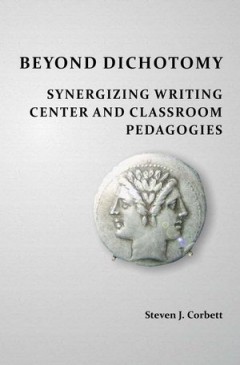
Beyond Dichotomy : Synergizing Writing Center and Classroom Pedagogies, Persp…
How closely can or should writing centers and writing classrooms collaborate? Beyond Dichotomy explores how research on peer tutoring one-to-one and in small groups can inform our work with students in writing centers and other tutoring programs, as well as in writing courses and classrooms. These multi-method (including rhetorical and discourse analyses and ethnographic and case-study) investi…
- Edition
- -
- ISBN/ISSN
- 9781602356313
- Collation
- -
- Series Title
- -
- Call Number
- 370 COR b
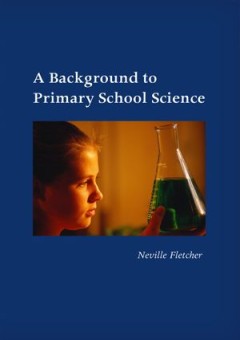
A Background to Primary School Science
The Australian Academy of Science has had a long standing interest in the provision of science education to Australian school students. Recognising that skills and attitudes in science are acquired at an early age, the Academy in 1994 launched a major program in science education at primary school level under the title Primary Investigations. Since science teachers at primary and lower secondar…
- Edition
- -
- ISBN/ISSN
- 9781921934056
- Collation
- -
- Series Title
- -
- Call Number
- 370 FLE b
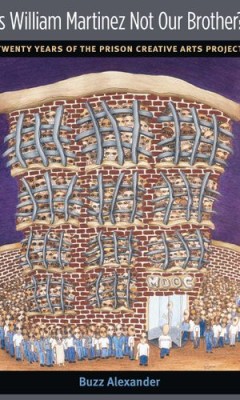
Is William Martinez Not Our Brother?
Praise for the Prison Creative Arts Project:"I cannot overstate how profoundly my experience with the Prison Creative Arts Project has shaped my life. It began my engagement with prison issues, developed both my passion and my understanding of them, and I continue to draw on both as I seek to contribute to a more rational, humane and just criminal justice system. PCAP prepared me to adapt to an…
- Edition
- -
- ISBN/ISSN
- 9780472900374
- Collation
- -
- Series Title
- -
- Call Number
- -
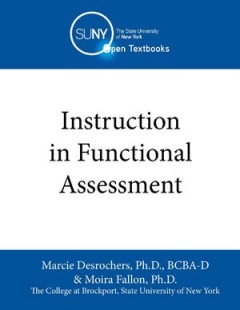
Instruction in Functional Assessment
Instruction in Functional Assessment introduces learners to functional assessment (F.A.), which includes a variety of assessment approaches (indirect, observational and experimental) for identifying the cause of an individual’s challenging behavior for the purpose of designing effective treatments. F.A. is mandated by federal law and is a recognized empirically based approach to treatment of …
- Edition
- -
- ISBN/ISSN
- -
- Collation
- -
- Series Title
- -
- Call Number
- -
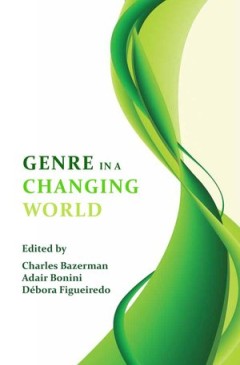
Genre in a Changing World
Genre studies and genre approaches to literacy instruction continue to develop in many regions and from a widening variety of approaches. Genre has provided a key to understanding the varying literacy cultures of regions, disciplines, professions and educational settings. Genre in a Changing World, edited by Charles Bazerman, Adair Bonini and Débora Figueiredo, provides a wide-ranging sampl…
- Edition
- -
- ISBN/ISSN
- -
- Collation
- -
- Series Title
- -
- Call Number
- -
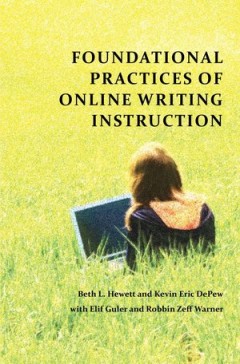
Foundational Practices of Online Writing Instruction
Foundational Practices of Online Writing Instruction, edited by Beth L. Hewett and Kevin Eric DePew, with associate editors Elif Guler and Robbin Zeff Warner, addresses the questions and decisions that administrators and instructors most need to consider when developing online writing programs and courses. Written by experts in the field (members of the Conference on College Composition and Com…
- Edition
- -
- ISBN/ISSN
- -
- Collation
- -
- Series Title
- -
- Call Number
- -
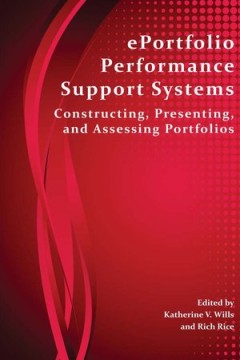
ePortfolio Performance Support Systems
ePortfolio Performance Support Systems: Constructing, Presenting and Assessing Portfolios addresses theories and practices advanced by some of the most innovative and active proponents of ePortfolios. Editors Katherine V. Wills and Rich Rice interweave 12 essays that address the ways in which ePortfolios can facilitate sustainable and measurable writing-related student development, assessment a…
- Edition
- -
- ISBN/ISSN
- -
- Collation
- -
- Series Title
- -
- Call Number
- -

Deeper Learning, Dialogic Learning, and Critical Thinking
Deeper learning, dialogic learning, and critical thinking are essential capabilities in the 21st-century environments we now operate. Apart from being important in themselves, they are also crucial in enabling the acquisition of many other 21st-century skills/capabilities such as problem solving, collaborative learning, innovation, information and media literacy, and so on. However, the majorit…
- Edition
- -
- ISBN/ISSN
- -
- Collation
- -
- Series Title
- -
- Call Number
- -

Copy(write): Intellectual Property in the Writing Classroom, Perspectives on …
The editors of Copy(write): Intellectual Property in the Writing Classroom bring together stories, theories and research that can further inform the ways in which we situate and address intellectual property issues in our writing classrooms. The essays in the collection identify and describe a wide range of pedagogical strategies, consider theories, present research, explore approaches and offe…
- Edition
- -
- ISBN/ISSN
- -
- Collation
- -
- Series Title
- -
- Call Number
- -
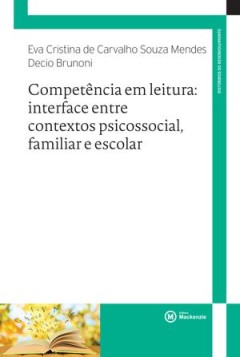
Competência em leitura
Diante dos crescentes resultados negativos do desempenho escolar de alunos brasileiros, constatados pelo Ministério da Educação (MEC), Competência em leitura: interface entre contextos psicossocial, familiar e escolar propõe-se a refletir sobre o complexo processo de alfabetização infantil e os contextos em que a leitura está inserida. Nesse sentido, apresenta-se uma análise dos aspect…
- Edition
- -
- ISBN/ISSN
- 9788582937242
- Collation
- -
- Series Title
- -
- Call Number
- -
 Computer Science, Information & General Works
Computer Science, Information & General Works  Philosophy & Psychology
Philosophy & Psychology  Religion
Religion  Social Sciences
Social Sciences  Language
Language  Pure Science
Pure Science  Applied Sciences
Applied Sciences  Art & Recreation
Art & Recreation  Literature
Literature  History & Geography
History & Geography